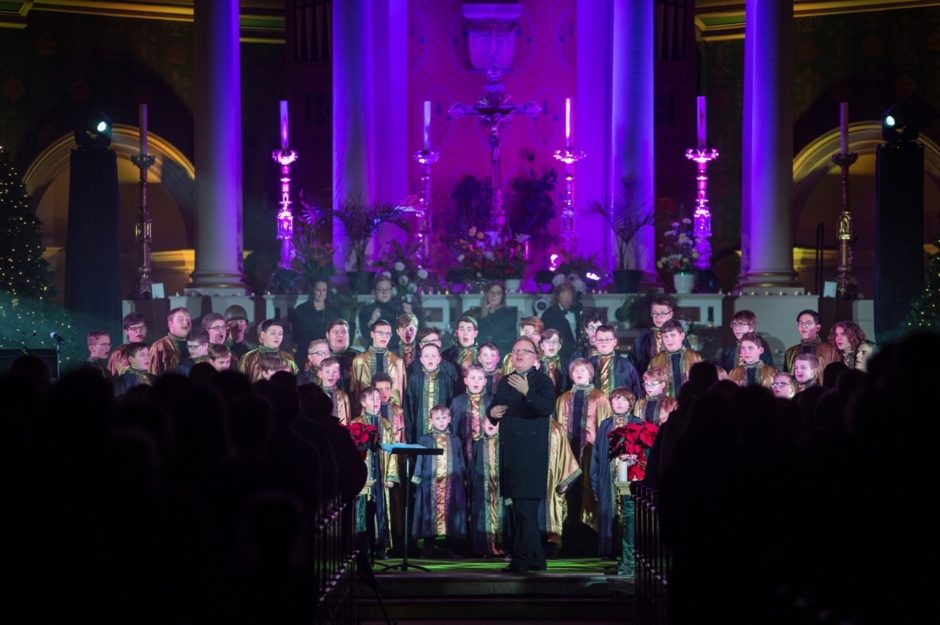December 25, 2018
The story of the Christmas truce of 1914 is widely recorded in the annals of history and has been an inspiration to many about the power of singing in bringing us together, especially when we contemplate the true message of the season: peace and goodwill to all.
I know the story so well.
And I know — having grown up in a communist country before the end of the Cold War — the deep power that singing at Christmas can have.
I want to tell you about a concert we staged, and why we did it.
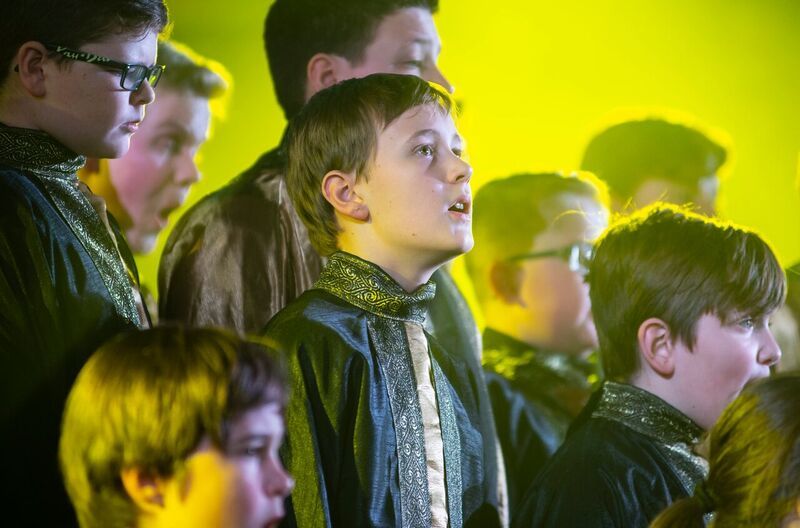
Last month in St. John’s, the Atlantic Boychoir recounted one truly remarkable event at the beginning of the Great War in song and story to an enraptured audience in the Basilica of St. John the Baptist.
They sang about the battalions of young soldiers who, while they fought bravely for their countries, naively brought a sense of humanity and camaraderie to the horrors they were experiencing.
Through choral music, the boys and young men from all across Newfoundland, gave voice to — and honoured — the thousands of Canadian soldiers who have sacrificed their own lives over the past 104 years, and to those who continue to do so around the world.
As co-artistic director of the Atlantic Boychoir, the story of the Christmas truce shows me that music — especially singing — is more powerful in bringing people together than any weapon of destruction that results in the atrocities of war we see too often on the news.
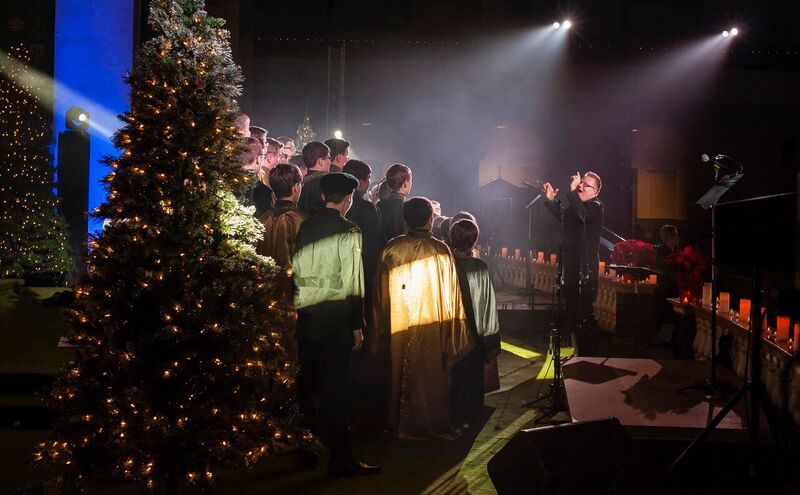
It’s often been said that the pen is mightier than the sword, and in this case singing together was the most powerful weapon on that evening which provided a beautiful lull in the midst of the carnage.
The gentle melody of Stille Nacht, written in Germany exactly 200 years ago and known in English as Silent Night, brought enemy soldiers together on that Christmas Day in 1914. It brings millions of people together each year in unified harmony.
A song can break down a barrier
It is the capacity of music to break down barriers that amazes me most.
In our world, we only seem to argue about our differences and this story reminds us that with music, we are all one and the same. Singing continues to give us hope that the impossible can be possible, and there can one day be peace between borders.
I was born and raised in the former Czechoslovakia under communist rule.
Although we lived in a country where the way we lived and what we could do was under strict control, where school curriculum, including even the songs we learned and sang, had to adhere to strict communist principles and pay tribute to the regime, where religion could not be practiced in public, where food was scarce, where families were broken apart, and people lived in fear … I remember Christmas as being the one special time in our lives.
In our home, it was the one time when families quietly celebrated the season and prayed for peace; it was a time when extra light, love, joy, and most of all hope filled our home.
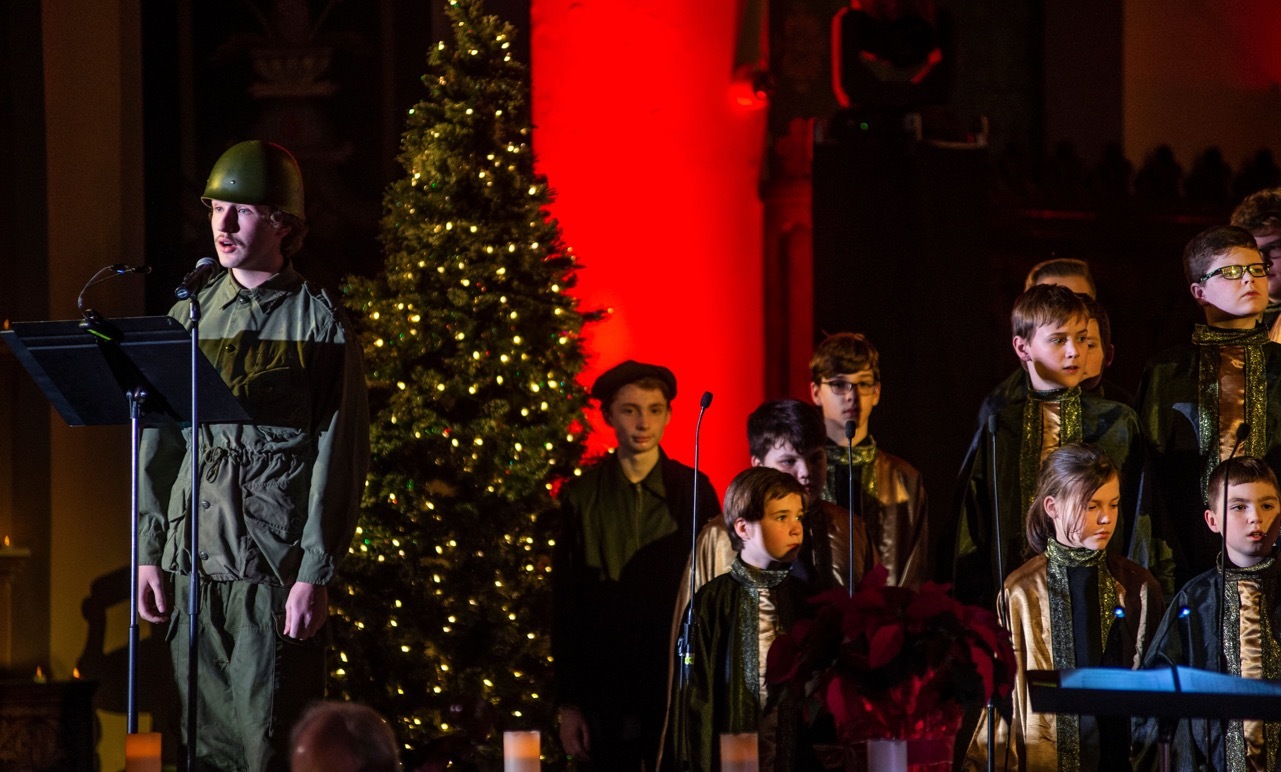
Every Christmas for us felt something like this truce must have felt to those soldiers.
Although it was short-lived, it gave us all hope to believe in freedom and a better future. In 1914, the nations of Europe had been at war for almost six months. By December, hopes for an early resolution to the war faded away.
As the soldiers shivered in the muddy and vermin-infested trenches, they must have contemplated their desperate situation, far away from home and their hearts would have yearned for safety, warmth, family, and most of all … peace.
From his seat in Rome, Pope Benedict XV pleaded with the warring leaders for a temporary ceasefire over Christmas but it was denied by the world leaders. The soldiers on the front, however, created their own spontaneous truce. In the darkness of Dec. 23, 1914, German soldiers quietly moved to the ruins of a bombed-out monastery.
There they held a Christmas service and the Allied soldiers listened intently as they sang their beautiful carols; and there was quiet – no gunfire, no bursts of shells illuminating the dark, clear and cold night.
A cold calm descended over them all. Later on, on that silent night, a few Christmas trees — tannenbaums as they were called — began to appear along the German trenches with tiny candles flickering in the night. The Allied soldiers watched from across the way — across that bare expanse of No Man’s Land.
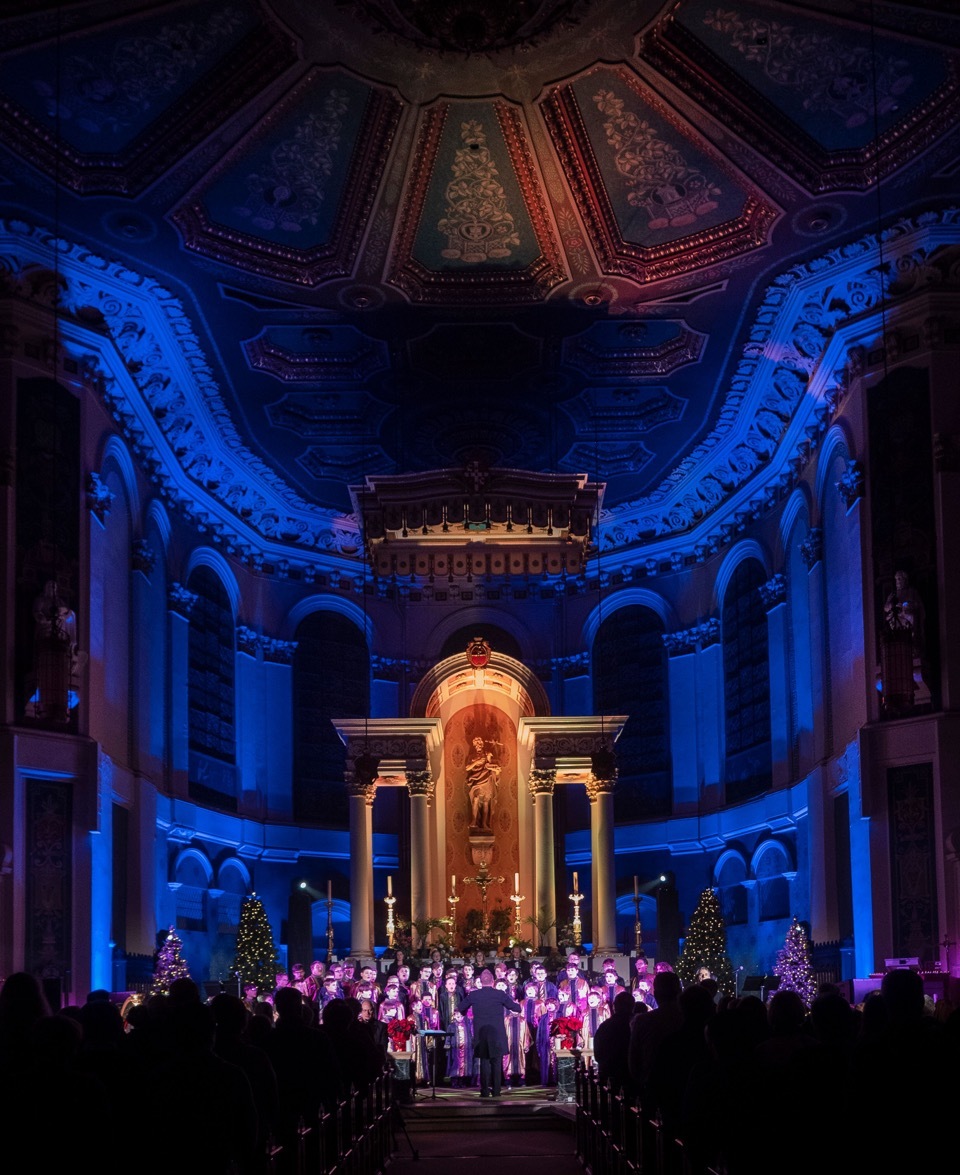
They could hear everything as only about 200 metres separated the German trenches from the Allied trenches and encampments; the reverent singing of Stille Nacht by the young German soldiers brought a cloak of calm and peace to the land.
And then — as if by divine will one beautiful tenor voice soared across the dark void from the Allied trench, singing the famous French carol, Cantique de Noel (O Holy Night).
From somewhere else, a solo violinist bravely stood and played a beautiful carol.
From the trenches, they burst into song
And then, on both sides, the Allied soldiers and the Germans burst out in song alternately singing the traditional carols of their youth. Heads popped up from the trenches as the singing continued.
Each song ended with a round of rousing applause from both sides. Word spread down along the front and heads peeked cautiously out; they crawled over the sandbags to the thousands of lights glowing like Christmas stars on the tannenbaums.
Two British officers, against orders from on high, ventured across to enemy lines and arranged a Christmas truce.
The negotiation was a mere formality by then. Up and down the trenches, men from both sides had already begun crossing the line to join together in celebration.
They shared plum puddings, beer, and whatever rations they had; some even shared personal effects such as buttons, photos, letters.
Later on the next day, they took time to respectfully bury their dead who lay in No Man’s Land. Eventually, even a football match was arranged.
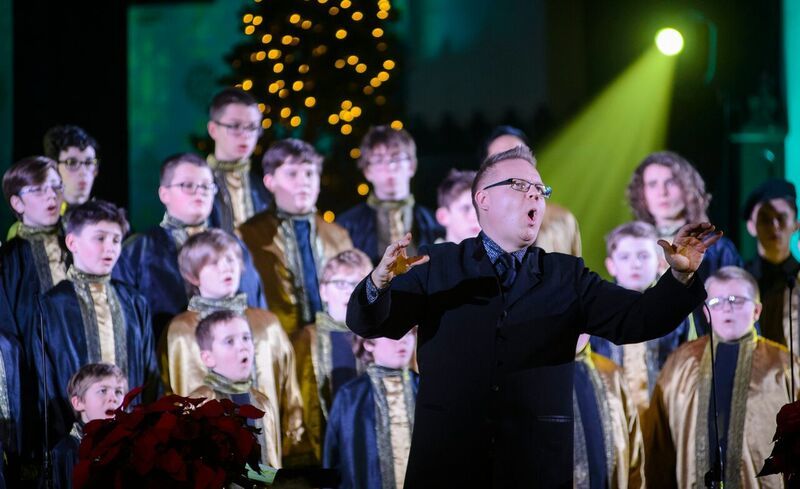
A story that has affected generations of people
This story in song had a powerful impact, not just on the audience, but also on the young singers in the Atlantic Boychoir, from the youngest eight-year old sopranos and altos to the tenors and basses, many of whom would be the same age as those young men fighting for their lives at the front.
"War is unlike anything that I can imagine as a 14-year-old boy living in Newfoundland today," said Jack White, a thoughtful tenor in the Atlantic Boychoir. "Many of the soldiers in World War I were only a couple of years older than me when they witnessed the horrors of war and that is so hard to fathom."
Another boy, Jack Thoms, a 10-year old treble, was struck by the emotions of the story.
“That Christmas, something magical must have happened. A soldier came out unarmed and said, ‘Let’s put aside our guns and enjoy Christmas together.’ So, they exchanged their little gifts they had and enjoyed Christmas in peace. Imagine if they had peace more often, their lives would be much better.
"Now think how lucky we are to have shelter, heat, food, water and — most importantly — peace to celebrate Christmas with family and friends in peace.”
In our time, as we hear so much about escalating tensions among world leaders, fears of global nuclear violence, desperate migrants and refugees, and riots in countries at peace, the story of the Christmas truce is an inspirational and true narrative that should be remembered, retold for generations, and celebrated.
It is a genuine story of peace and goodwill that will always leave us with a deep sense of hope.
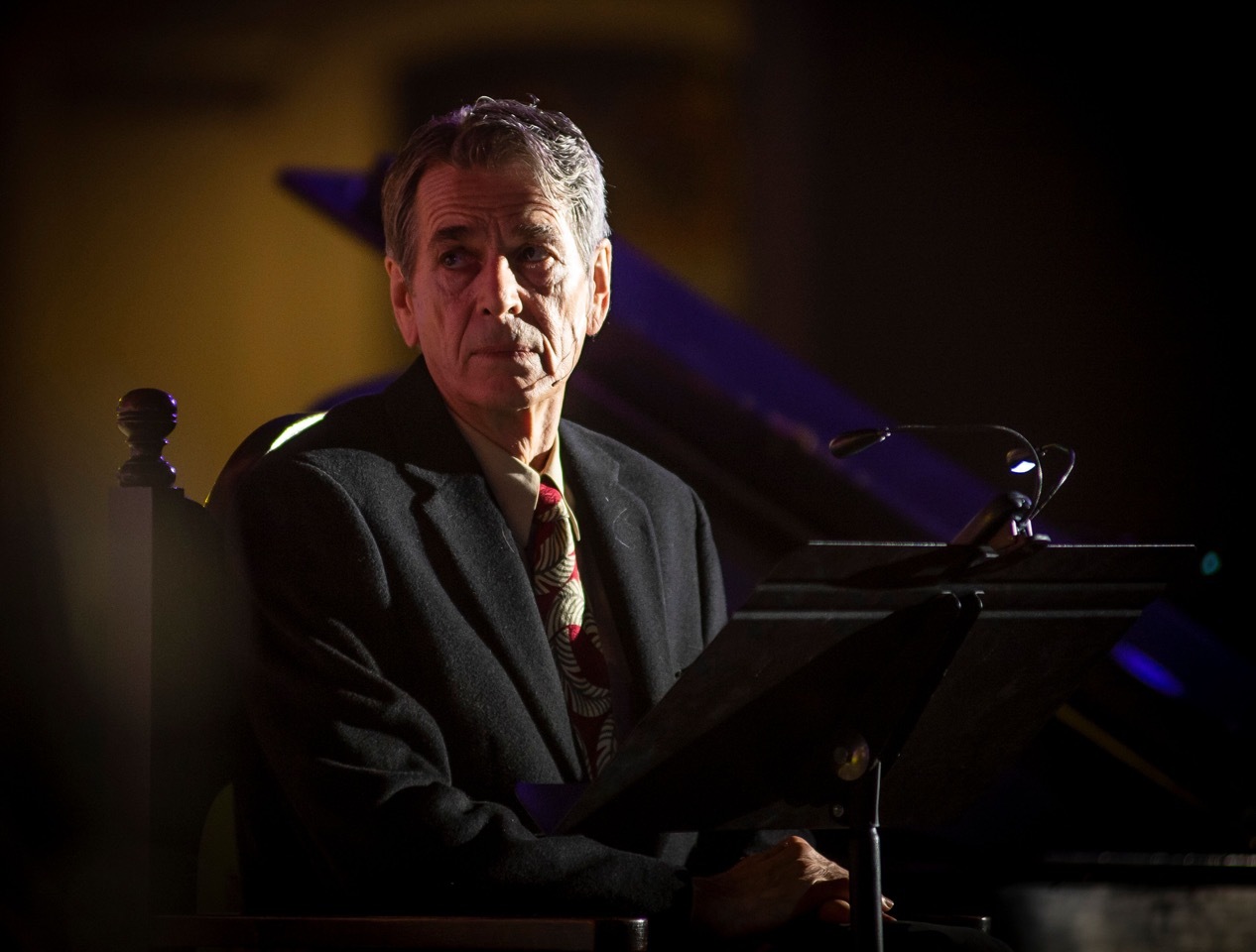
Music connects us all; it is a form of communication that crosses language barriers and draws people together in shared communion of expression, and in this case, a short-lived truce that resulted in a peaceful and silent night from the terrors of war for these boys and young men, all of whom were away from home for the very first time in their young lives.
Music also reminds us that what might seem impossible is indeed possible and to pray for an end to global tensions and for an enduring peace so that we might all live in harmony together — in a world that celebrates our differences, rather than attacking them.
About the author
Jakub Martinec is the co-artistic director of the Atlantic Boychoir, and director of choral studies at Memorial University in St. John’s.
From the archives
Listen to an excerpt from the As It Happens archives, as Alan Maitland reads an account of the ceasefire that spontaneously happened at Christmas in 1914.
